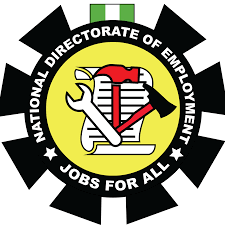The Federal Government has solicited the cooperation of freight forwarders to advance Nigeria’s blue economy initiative.
Mrs Chinyere Uromta, Acting Registrar, Council for the Regulation of Freight Forwarding in Nigeria (CRFFN), made this appeal at the opening of a two-day training for freight forwarders in the South-East, on Monday in Port Harcourt.
The theme of the training is ”Optimising Nigeria’s Blue Economy Potentials through Logistics Performance.’’
The training focuses on equipping freight forwarders with the knowledge required to contribute to the nation’s blue economy goals.
The acting registrar said that the blue economy initiative presented a transformative partway for Nigeria to tap into its vast maritime potential to drive economic growth.
Uromta emphasised the importance of collaboration between the government and freight forwarders in realising the full potential of the maritime sub-sector.
“Freight forwarders play a pivotal role in facilitating international trade and unlocking the potential of our blue economy.
“Thus, our objective is to professionalise the sector through education, training, and development, which is vital for enhancing performance,” the acting registrar stated.
She reaffirmed the Federal Government’s commitment to the blue economy initiative, emphasising that concrete steps were being taken to accelerate the sector’s development.
“This training is aimed at equipping freight forwarders nationwide with the expertise necessary to drive growth, prosperity, and sustainability in the maritime sub-sector.
“We have conducted similar training in the South-West, and after this session in the South-East, we will proceed to the Northern region,” she explained.
Uromta also urged freight forwarders to confirm their registration with the CRFFN and ensure their payments are up to date.
She noted that the proceeds from these payments would be reinvested in further training initiatives to benefit the freight forwarding industry across the country.
In his remarks, Alhaji Adegboyega Oyetola, Minister of Marine and Blue Economy, highlighted the ministry’s efforts to streamline levies imposed on maritime businesses.
Oyetola, represented by his Technical Adviser, Prof. Busayo Fakinlade, informed the participants that a committee had been established to review all levies charged by agencies under the ministry.
“The ministry is committed to ensuring there are no multiple levies imposed on businesses within the maritime sub-sector.
“This interaction with freight forwarders and other stakeholders will helps us identify which levies negatively impact their operations,” Oyetola said.
He added that consultions were ongoing with the Nigeria Customs Service, Nigeria Ports Authority, and Nigeria Shippers Council, among other agencies, with the aim of harmonising charges.
“Ultimately, a policy statement will be issued to advance the maritime sub-sector forward,” the minister added.
Participants at the training included representatives from key freight forwarding associations such as the National Association of Government Approved Freight Forwarders (NAGAFF) and National Association of Air Freight Forwarders and Consolidators (NAFFAC).
Others are Association of Registered Freight Forwarders of Nigeria (AREFFN), National Council of Managing Directors of Licensed Customs Agents (NCMDLCA), and Association of Nigerian Licensed Customs Agents (ANLCA). (NAN)
























